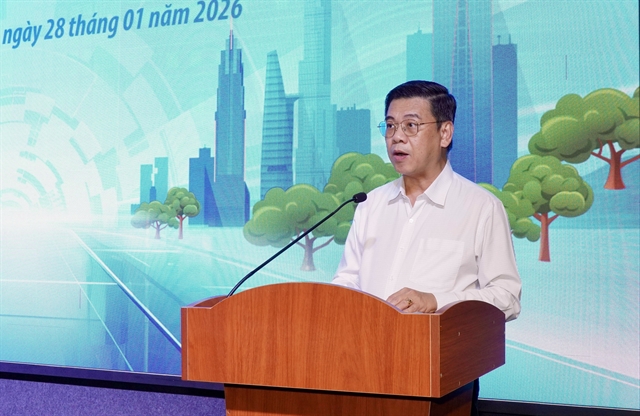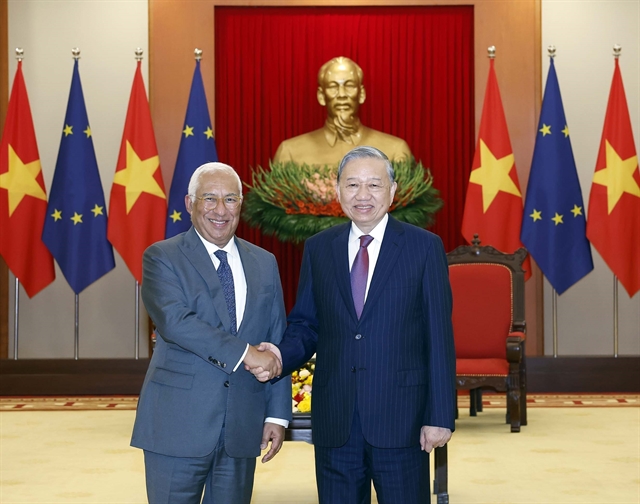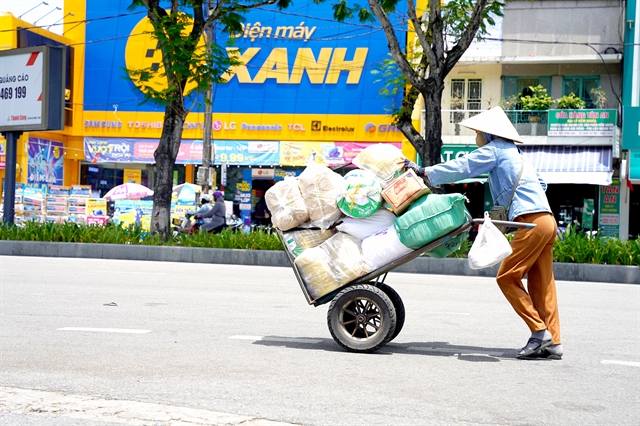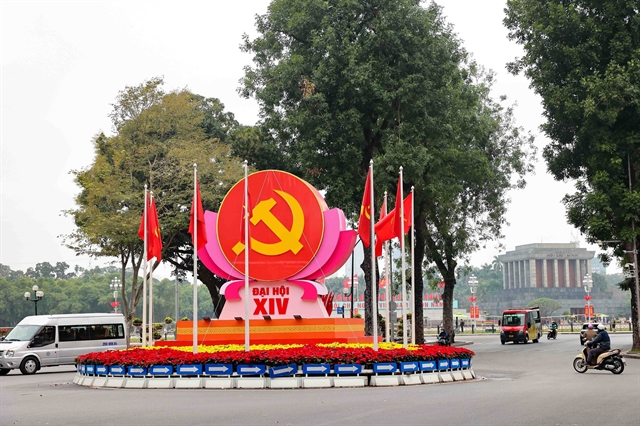 Society
Society

 |
| An outdoor labour, with full of protective clothing, works hard in extreme hot weather. From prolonged heat to sudden downpour, outdoor workers face growing threats. — VNA/VNS Photo Mai Trang |
HÀ NỘI — Blistering heat, sudden storms and thick smog are turning daily life into a struggle for outdoor workers in Hà Nội, leaving many vulnerable and unable to cope alone.
They require a sustainable support system combining government action, business responsibility and community engagement, alongside stronger social protection, urban infrastructure and climate-change adaptation measures.
This is the key finding of a new study conducted by the Centre for Community and Environmental Development (ECUE) and the 'For a Livable Hà Nội Network,' in collaboration with the United Nations Development Programme (UNDP) in Việt Nam.
The survey is part of the thematic research and technical assistance initiative “Promoting social inclusion and climate change adaptation in Hà Nội”, funded by Australia’s Department of Foreign Affairs and Trade (DFAT) through UNDP’s Việt Nam Provincial Governance and Public Administration Performance Index (PAPI) Programme.
Extreme weather
A survey of more than 300 outdoor workers in Hà Nội revealed two types of risks. The first is cumulative risks – prolonged exposure to heat, air pollution and noise that slowly erode physical and mental health. The second is event-based risks – sudden phenomena such as storms, squalls and floods that disrupt work and endanger safety.
These two types of risks reinforce each other: long-term exposure weakens the ability to cope with sudden shocks, further deepening workers’ vulnerability.
According to the results, heatwaves and heavy rain are the most damaging weather patterns for the health, work and daily lives of outdoor workers. While many individuals have tried to adapt by adjusting work hours, seeking temporary shelter or using improvised protective gear, existing responses remain short-term, individual and unsustainable.
Moreover, the impacts of extreme weather vary significantly by occupation, gender, physical condition, working hours, workplace environment and access to protective equipment or support. This underscores the need for tailored interventions for different occupational groups such as street vendors, delivery drivers and construction workers.
A Hà Nội scrap collector Đỗ Thị Hồng said: “Sun and rain affect our work, health, and daily lives in so many ways. On scorching days, roaming the streets is exhausting and the risk of heatstroke is high.
"At landfills and scrap yards, the stench rises thick and foul; it’s unbearable. On rainy days, we have to stop working because scrap like cardboard and paper gets soaked and no one will buy it; pushing on is pointless.
“We spend all day on the streets, and even though I try hard to protect my health by wearing a raincoat, mask and hat, I still can’t avoid falling ill when the weather suddenly changes.”
Toward sustainable solutions
Nguyễn Thảo Đan, a visually impaired street singer, recalled her music group’s experience.
“Our band usually performs outdoors, mainly in Thống Nhất Park and around Hoàn Kiếm Lake," she said. "At the lake there are canopies, so when the sun blazes or sudden rain comes, we still have a place to shelter, which makes a huge difference.”
“Many members of the group are visually impaired, so whenever the weather turns bad, they can hardly help but pack up the equipment. At those times, only the logistics team can rush to stow the instruments and speakers. If the city could install more shelters in public outdoor spaces, it would certainly be a great help to music groups like ours,” said Đan.
Based on feedback from outdoor workers who took part in the survey, the research proposes a series of measures to address and reduce the impacts of extreme weather.
Key recommendations include 'greening' urban infrastructure, expanding public spaces, strengthening environmental protection and ensuring that climate-adaptation policies and social-protection measures are inclusive and mutually reinforcing.
At the same time, it is essential to amplify the voices of outdoor workers themselves, creating stronger mechanisms for consultation and direct dialogue with them during the development and implementation of urban development and climate-response policies.
Lê Quang Bình, Director of the ECUE and Coordinator of the 'For a Livable Hà Nội' network, said that the Party and the State always uphold the principle of 'Leaving no one behind.'
“To build a truly livable Hà Nội, not only a place to make a living but also a home for everyone, more attention should be put on outdoor labour groups. Although these groups are present everywhere in urban life, they are rarely fully understood in terms of their livelihoods and the challenges they face,” he said.
Bình expressed concerns about how government support programmes and policies could more effectively reach this group, as the goal of these policies is to ensure welfare for all citizens.
He proposed improving urban infrastructure, developing and completing support policies and raising community awareness about the importance of this labour group.— VNS




